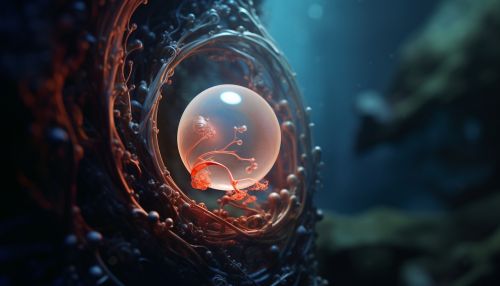Embryonic Development
Overview
Embryonic development, also known as embryogenesis, is a crucial phase in the life cycle of most multicellular organisms. It involves the transformation of a single-celled zygote into a multicellular embryo through a series of cell divisions and differentiation processes. This article delves into the intricacies of embryonic development, exploring the various stages, mechanisms, and factors that influence this vital biological process.


Stages of Embryonic Development
Embryonic development is typically divided into several stages, each characterized by specific events and transformations.
Fertilization
The process of embryonic development begins with fertilization, the fusion of male and female gametes to form a zygote. This event triggers a series of biochemical reactions that lead to the activation of the zygote's genome and the initiation of embryogenesis.
Cleavage
Following fertilization, the zygote undergoes a series of rapid cell divisions known as cleavage. This process increases the number of cells, or blastomeres, without increasing the overall size of the embryo. Cleavage results in the formation of a multicellular structure called a blastula.
Gastrulation
The next stage of embryonic development is gastrulation, a complex process involving cell migration and rearrangement to form three germ layers: the ectoderm, mesoderm, and endoderm. These germ layers give rise to all the tissues and organs of the adult organism.
Organogenesis
Organogenesis is the stage of embryonic development during which the germ layers differentiate into the various organs and structures of the body. This process is guided by a complex interplay of genetic, molecular, and cellular mechanisms.
Mechanisms of Embryonic Development
Embryonic development is governed by a series of intricate mechanisms that regulate cell division, differentiation, and morphogenesis.
Cell Division
Cell division, or mitosis, is the process by which a single cell divides into two identical daughter cells. This process is crucial for increasing the number of cells in the embryo during the cleavage stage.
Cell Differentiation
Cell differentiation is the process by which unspecialized cells become specialized, taking on distinct roles and functions. This process is guided by the activation and repression of specific genes within each cell.
Morphogenesis
Morphogenesis is the process by which the cells and tissues of the embryo arrange themselves into the three-dimensional structure of the organism. This process involves cell migration, cell adhesion, and changes in cell shape.
Factors Influencing Embryonic Development
A variety of factors can influence embryonic development, including genetic factors, environmental conditions, and maternal health.
Genetic Factors
The genetic makeup of the organism plays a crucial role in embryonic development. Specific genes regulate the timing and sequence of developmental events, as well as the formation and differentiation of tissues and organs.
Environmental Conditions
Environmental conditions, including temperature, light, and the presence of certain chemicals, can also influence embryonic development. These factors can affect gene expression, cell division, and differentiation processes.
Maternal Health
The health of the mother can significantly impact embryonic development. Factors such as nutrition, stress, and exposure to harmful substances can affect the health and development of the embryo.
